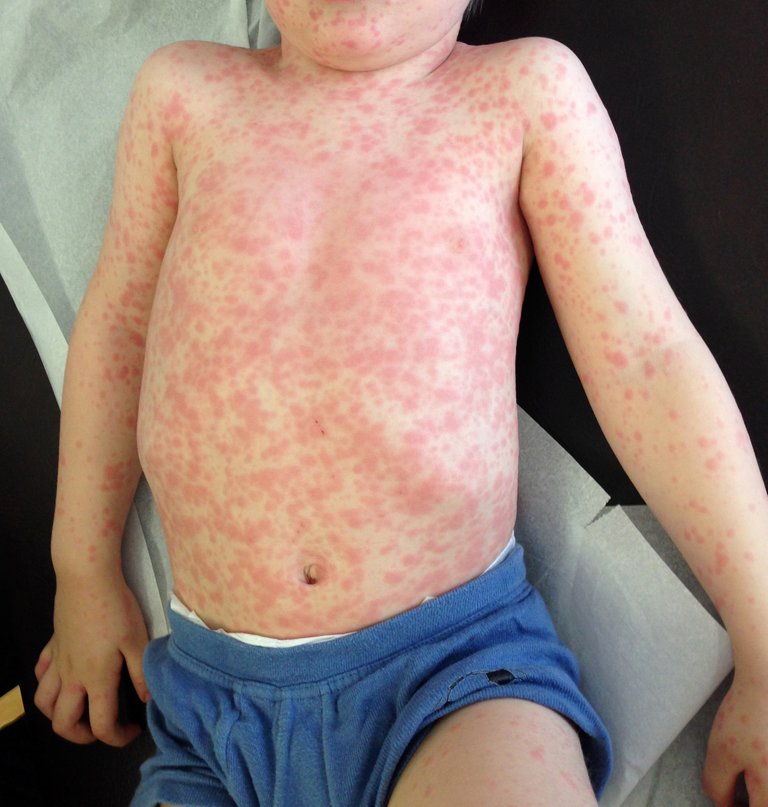When Triggers Lead to Unforeseen Health Outcomes
Our body system is very complicated and certain irritations can cause significant changes that can be worrisome to our health. While seeing a movie this morning, I saw a movie where a young lady cut her wrist and was bleeding profusely and a friend tried to save her but was unable to. When the mortality test results arived, she was said to have died of hemophilia and not the cut. So it was said that why a cut was a factor, it was not the reason for her death. With this, I decided to check if it was possible for something to be a trigger but not the cause of death, and I found a case study.
The notion that a trigger could be distinct from the ultimate cause of death prompted me to explore an intriguing case study. The story of 11-year-old Cameron Jean-Pierre unfolded, recounting a seemingly innocuous event. During a visit to his grandmother's home, the aroma of frying fish wafted through the air. Upon inhaling the scent, Cameron collapsed. His father rushed to his aid with an inhaler, as he had asthma. While his condition initially improved, it deteriorated rapidly, leaving the young boy weak and unconscious. Despite swift medical attention, Cameron was tragically pronounced dead. A cursory analysis might attribute his death solely to asthma, but the truth is far more nuanced.
Young Cameron death result according to Dr Robert A. Wood, the director of pediatric allergy and immunology at John Hopkins University School of Medicine showed that he died of Asthma Induced by Airborne Allergens. Young Cameron was allergic to fish, and that lead to a severe allergic reaction which triggered an asthma attack. When his father helped with the asthma steroid, the asthma subsided but the allergic reaction didn't disappear.
Allergies are the world's most chronic health condition in the world where the body immune system overreact to somewhat less harmful or not harmful particles or subtances. The reaction is asssocted with Immunoglobulin E (IgE) which is produced by the body to normally atack harmful substances but in the case of allergies, it causes harm to the person.
Depending on the sensitivity of the allergy, some people might not get much effect except from itches after consumption in the case of mild allergies while in the case of more serious ones, smells can cause a serious reaction which is actually a result of the protein being dispersed in the air and not the smell from the cooking itself.

Get Archive
People who have allergies can experience increase heart rate, itching, nausea, swelling and difficulty breathing. People who have mild seasonal allegies will be familiar with antihistamine drugs such as Benadryl, or Claritin. People can deteriorate very fast or very slow and this depends on their immune syetem. People can experience anaphylaxis where there is a trigger of body tissues where tongue and throat can swell, closing the airways leading to suffocation.
The origins of allergies remain a mystery, but the fact that they can surface at any age, potentially leading to fatal outcomes if not promptly addressed, is undeniable. Common allergens such as pollen or proteins in the air can instigate reactions that may be mistaken for asthma attacks. The intricacies of these interactions highlight the unpredictability of health outcomes.
With this post, we can see that it is possible for a person to die from what isn't expected as a result of an underlying health case. Wheat is a common allergen but Celiac disease and Glutten Intollerance are not wheat allergies but they can be mistaken. On a final note, in the case of an anaphylectic shock, it is important to use epinerphrine shot before getting to the hospital so it can help relax the muscles. Our health is a complex mosaic of interactions, where triggers and underlying conditions can conspire to lead us down unforeseen paths.
Read More
https://abcnews.go.com/US/11-year-boy-dies-apparent-allergic-reaction-fish/story?id=60137846
https://www.ncbi.nlm.nih.gov/books/NBK430901/
https://www.ncbi.nlm.nih.gov/pmc/articles/PMC6434661/
https://www.who.int/news-room/fact-sheets/detail/asthma
https://www.nytimes.com/1993/03/28/magazine/asthma-kills.html
https://www.ncbi.nlm.nih.gov/pmc/articles/PMC7173512/
https://www.ncbi.nlm.nih.gov/books/NBK447112/
https://aacijournal.biomedcentral.com/articles
https://www.hopkinsmedicine.org/health/conditions-and-diseases/allergies-and-the-immune-system
https://www.ncbi.nlm.nih.gov/books/NBK430901/
https://www.ncbi.nlm.nih.gov/pmc/articles/PMC6434661/
https://www.who.int/news-room/fact-sheets/detail/asthma
https://www.nytimes.com/1993/03/28/magazine/asthma-kills.html
https://www.ncbi.nlm.nih.gov/pmc/articles/PMC7173512/
https://www.ncbi.nlm.nih.gov/books/NBK447112/
https://aacijournal.biomedcentral.com/articles
https://www.hopkinsmedicine.org/health/conditions-and-diseases/allergies-and-the-immune-system

Thanks for your contribution to the STEMsocial community. Feel free to join us on discord to get to know the rest of us!
Please consider delegating to the @stemsocial account (85% of the curation rewards are returned).
Thanks for including @stemsocial as a beneficiary, which gives you stronger support.
Congratulations @thomisin! You have completed the following achievement on the Hive blockchain And have been rewarded with New badge(s)
Your next target is to reach 3500 upvotes.
You can view your badges on your board and compare yourself to others in the Ranking
If you no longer want to receive notifications, reply to this comment with the word
STOPCheck out our last posts: